Recent Amendment In Rape & POCSO Laws
Now enacted into law is the Criminal Law (Amendment) Bill, 2013, often known as the Anti-Rape Bill. The deadly gang rape that occurred in New Delhi on the evening of December 16, 2012, shocked the entire country, and as a result, the Act went into effect on February 3, 2013. The huge outrage after the Nirbhaya Rape Case in Delhi demonstrated the immediate need for reform in the rape laws.
The legal system changes as per the demands and social changes going on in the society, as at every turn some new belief or phenomenon would come into existence or some fact which was acceptable in the past would be frowned upon in the present such as child marriage.
Say for example, in the 18th century there was virtually no legislation governing cybercrimes in the 18th century.
2018’s Criminal Law Amendment Act
Similarly, with changes being introduced by the Ministry of Law ...Read More
Say for example, in the 18th century there was virtually no legislation governing cybercrimes in the 18th century.
2018’s Criminal Law Amendment Act
Similarly, with changes being introduced by the Ministry of Law and Justice introduced under the Criminal Law Amendment Bill 2018 dated July 23, 2018, which got passed in both houses of the Parliament, Lok Sabha and Rajya Sabha passed it on July 30 and August 6, respectively. The changes guaranteed a death sentence for those who were found guilty of raping a girl falling under the age of sixteen or twelve. The Bill superseded the ordinance issued in April by the President of India and introduced significant changes to IPC 1860, Cr. P.C 1973, Evidence Act 1872, as well as to Protection of Child from Sexual Offences (POCSO) 2012.
Amendments in the Indian Penal Code
Section 376AB was introduced shortly after Section 376A, it provided that a sentence of rigorous imprisonment for a minimum period of 20 years or more would be imposed on any such person found guilty of raping a girl below the age of 12 years. This implies that the accused's actions were completely unlawful and wrong, serving as a reminder of their natural life and that they could also face fines or even the death penalty.
According to Section 376DA, if a woman under the age of sixteen is raped by one or more people who are part of a group or committed an act in furtherance of a shared goal, each of those individuals will be considered to have committed the crime of rape and will be sentenced to life in prison, which will serve as a reminder of their natural life, as well as a fine or the death penalty.
According to section 376DB, if a woman under the age of 12 is raped by one or more people acting in concert with one another with the intent to commit rape, each of them will be considered to have committed the crime and will be sentenced to life in prison, which implies that what he had done was completely illegal and off-base and serves as a reminder of his natural life, as well as a fine or the death penalty.
The penalty for rape is covered in section 376, which also replaced sub-section 1 with the phrase "Anyone found guilty of rape faces a minimum sentence of 10 years in jail, a maximum sentence of life in prison, and a fine." Section 376 was amended to add a new subsection, "3," after section 2. It states that anyone found guilty of raping a woman under the age of sixteen will face a rigorous sentence of at least 20 years in prison, with the possibility of life imprisonment, which is meant to serve as a reminder of the offender's natural life and an implicit indictment of what they had done.
What is the POCSO Amendment Act of 2019?
The POCSO Act was amended in 2019 to better protect children from sexual assault and harassment and to toughen the penalties for sexual offenses against minors. This amendment's characteristics are:
The act neutralises gender in offences against minors.
The term "sexual assault" has been expanded to include giving children hormones or other chemicals to help them reach a sexual maturity stage before engaging in penetrating sexual assault.
As per the Act of 2019 child pornography is any kind of visual representation of a child being engaged in sexual act of any kind, which includes pictures, videos, recordings, or computer-generated images which are identical to a real child.
The POCSO Act of 2019 explains the crime of child pornography as well as punishment for it.
The changes made suggest synchronising it with the IT Act as well as criminalising the act of transmitting pornographic content to minors.
By making the punishment as strict as the death penalty, the Act helps pointing out the severity of the Act.
One of the most significant aspects is that individuals who perpetrate intimate sexual attacks on a minor under the age of sixteen face a maximum sentence of 20 years in prison, facing the prospect of life in prison, in addition to a fine
The statute raises the maximum sentence to the death penalty and the minimum punishment from 10 to 20 years in cases of aggravated penetrative sexual assault.
The Act stipulates that anyone using a kid for pornographic purposes faces a maximum five-year prison sentence in addition to a fine to stop child pornography.
On the other hand, the maximum sentence for a second or subsequent conviction would be seven years in prison along with a fine.
Also, so as to solve the pending POCSO cases at the earliest as possible, more than a thousand fast track courts were introduced.
How can Sharks of Law assist you?
Expertise and specialisation: The lawyers at the Sharks of Law have deep knowledge, experience and are aware of the legal issues related to their fields of specialisation, it could be criminal law, corporate law, family law.
Communication Skills: Our lawyers have excellent communication skills which could guarantee that the clients will be updated about the progress of their case, their legal options, and thereby are ready for court hearings. A lawyer and his client could build their trust and confidence by communicating regularly about the matter at hand.
Focus on the Client and empathy: the demands and concerns of the client are the priority of the Sharks of Law. Our teams are avid listeners when it comes to the client, show empathy for the circumstances they could be feeling, and also modify the legal methods in order to achieve specific objectives or demands of the clients.
Teamwork: The lawyers at the Sharks of Law collaborate with each other, sharing their specialities and experience, backgrounds, and different viewpoints so as to offer comprehensive legal solutions for the case at hand. Working together would improve the quality of client service, thus helping with the overall efficiency of the firm.
Continuous Learning: AS the laws are constantly being altered or new laws are introduced, Sharks of Law helps you keep up with such changes. It is important to understand and the changes in the law be able to keep up with the new developments in technology and the legal field as well.
FAQs on POCSO Act?
1. What is the POCSO Act?
The Protection of Children from Sexual Offences (POCSO) Act of 2012 was designed to provide effective legislative measures to address child sexual abuse and exploitation. The act aims to protect minors against sexual assault, pornography, and harassment by creating special tribunals for the swift trial of these acts.
2. What are POCSO Act amendments?
In order to shield minors under the age of 18 from sexual abuse, assault, pornography, and harassment, the POCSO Act went into effect in 2012. This stipulates that the trial must take place within six months of the FIR's registration date, and the investigation must be finished within two months.
3. What are amendments made in 2019 to the POCSO Act 2012?
Penetrative Sexual Assault, Aggravated Penetrative Sexual Assault, Aggravated Sexual Assault, Pornographic Purposes, and Storage of Pornographic Material.
4. What offence is punished under Section 376 IPC?
The horrible crime of rape, as defined by Section 375 of the IPC, is punishable under Section 376.
5. What is the punishment for rape as stated under Section 376 IPC?
The minimum sentence for rape under Section 376 is now seven years, with the possibility of an extension to ten years in certain situations, such as when a public worker or minor commits the crime. The maximum sentence is life in prison, with the death penalty an option in extreme circumstances. In addition, a fine will be imposed on the convicted party.
...Read lessConsult with experienced Lawyers across expert areas

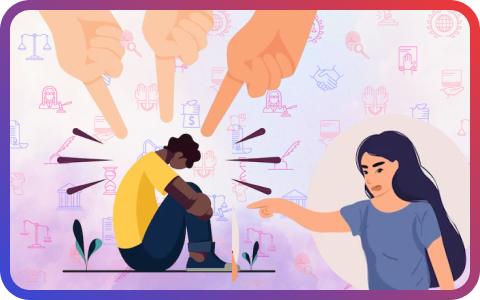
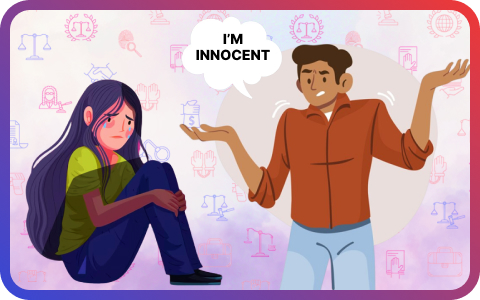

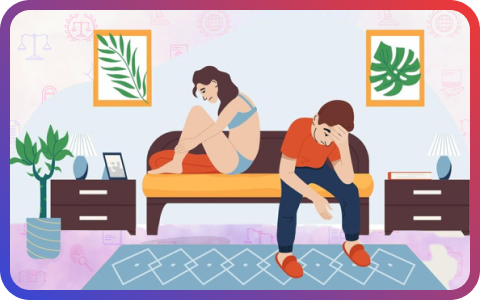






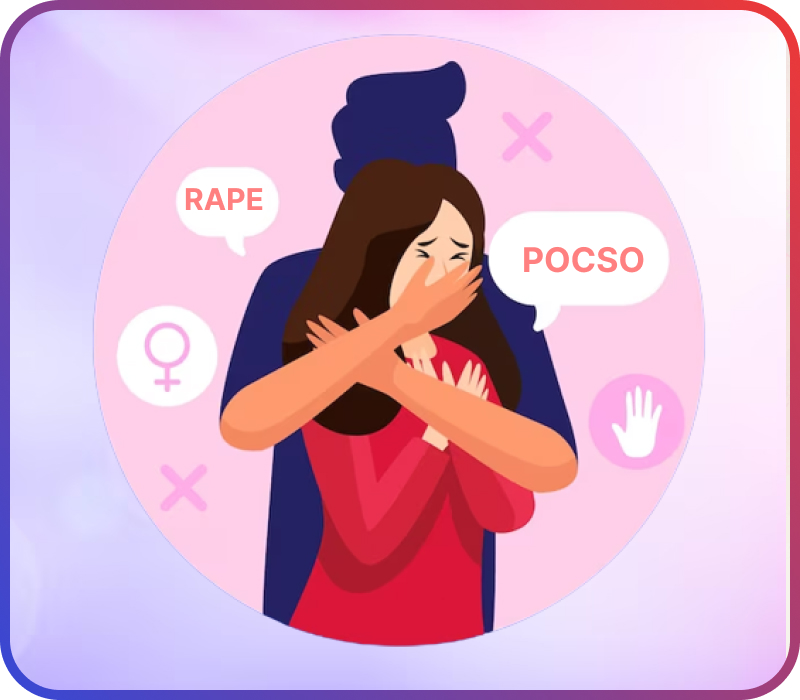

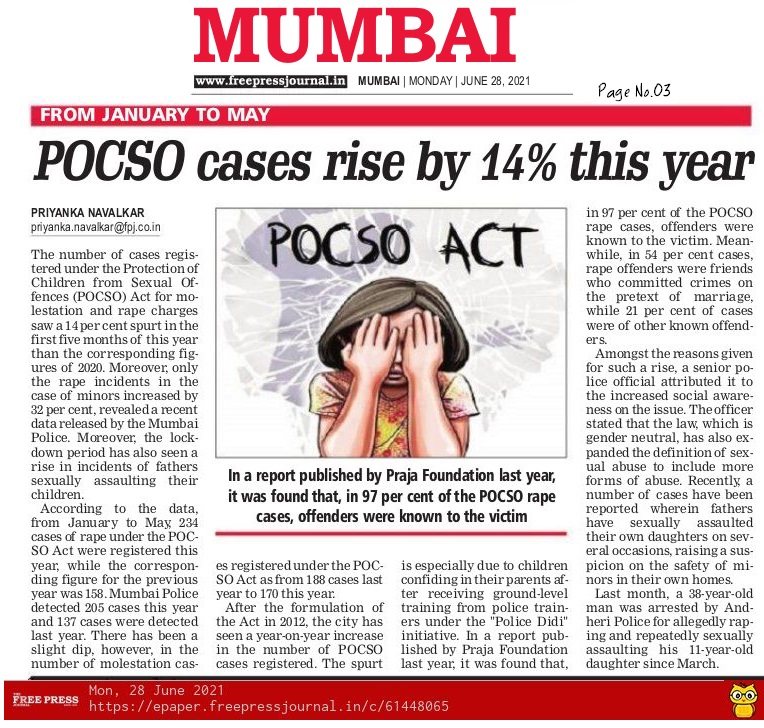
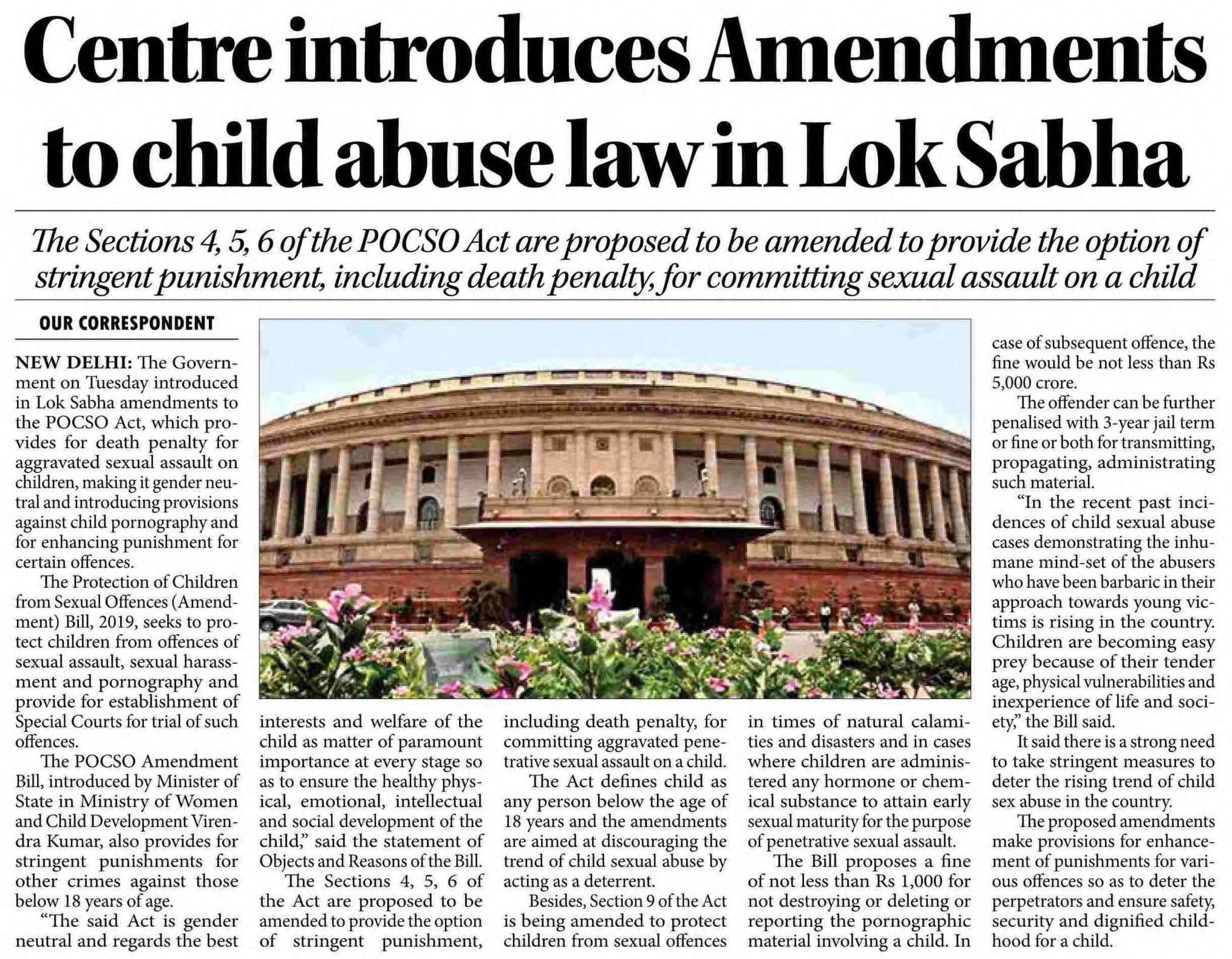
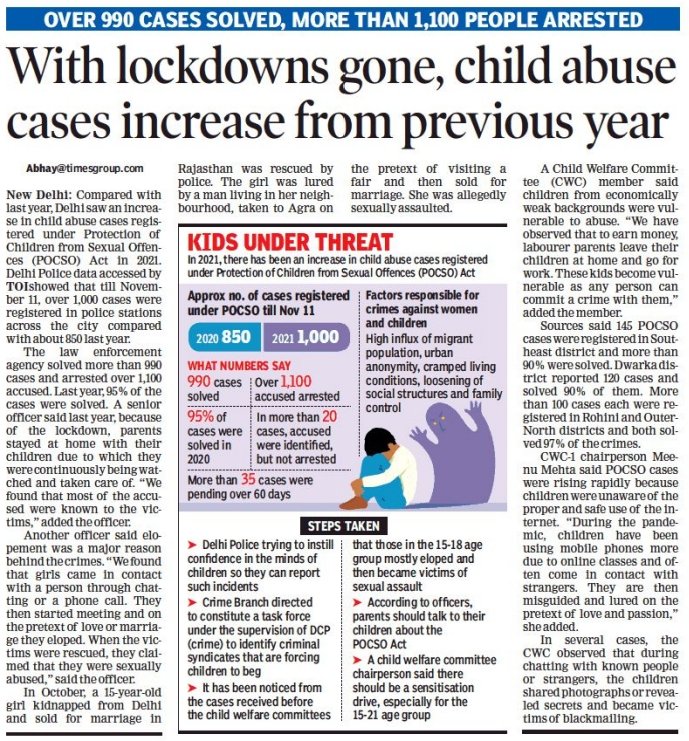
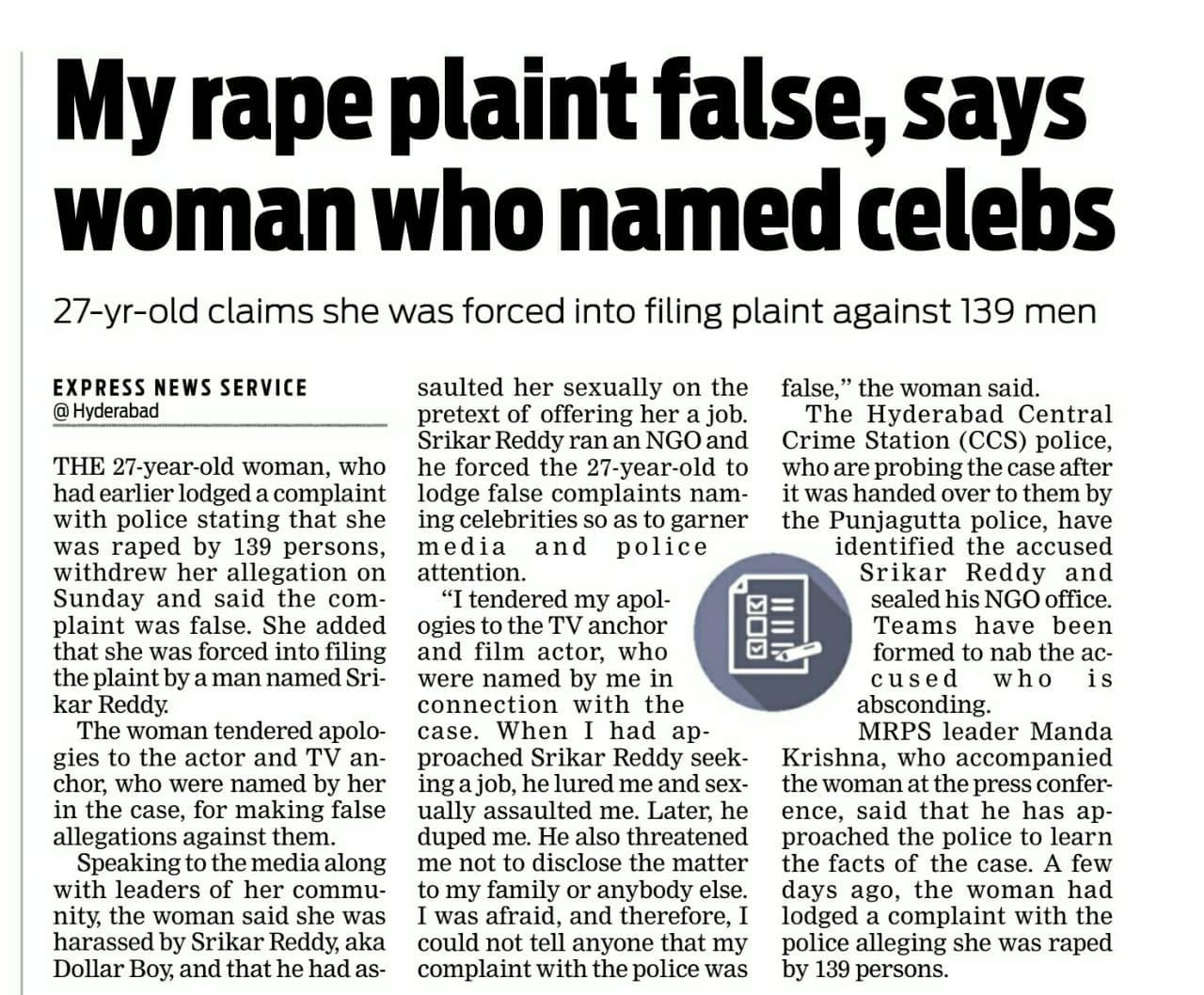
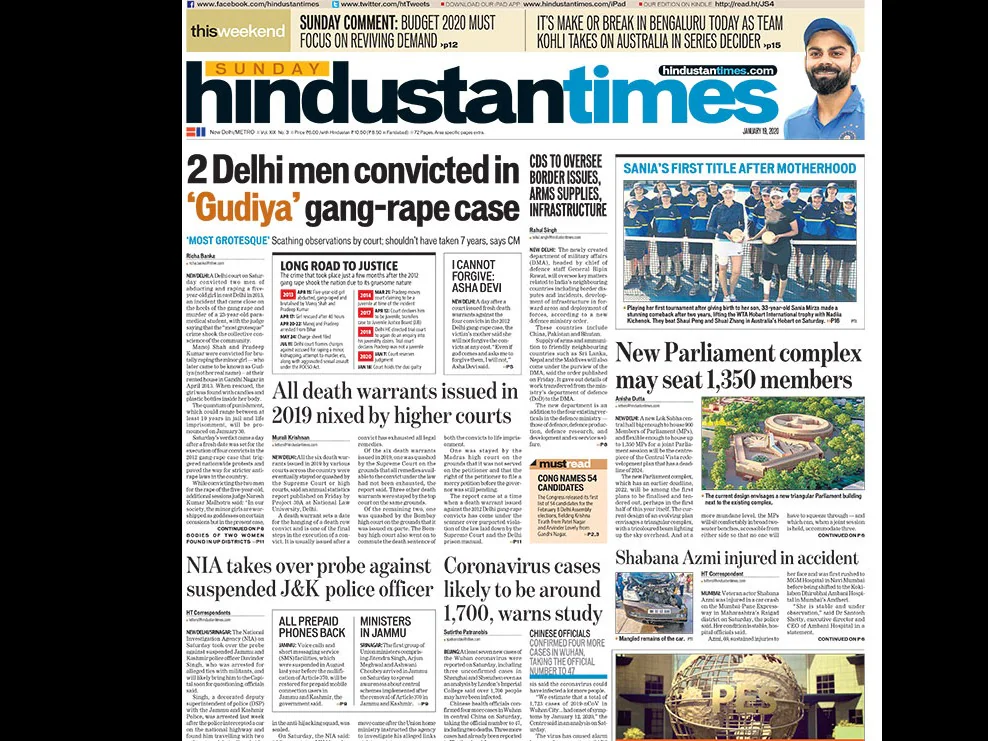
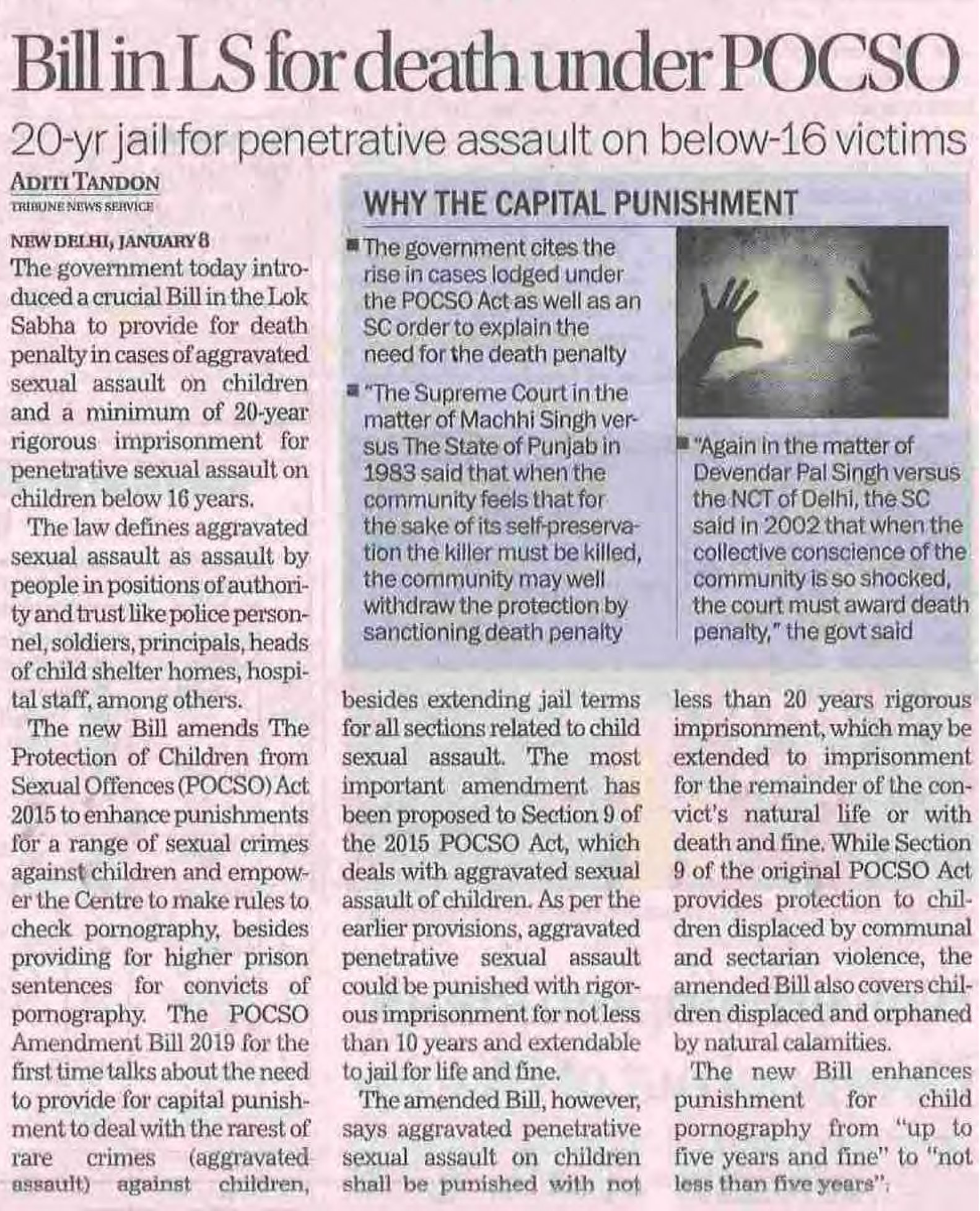
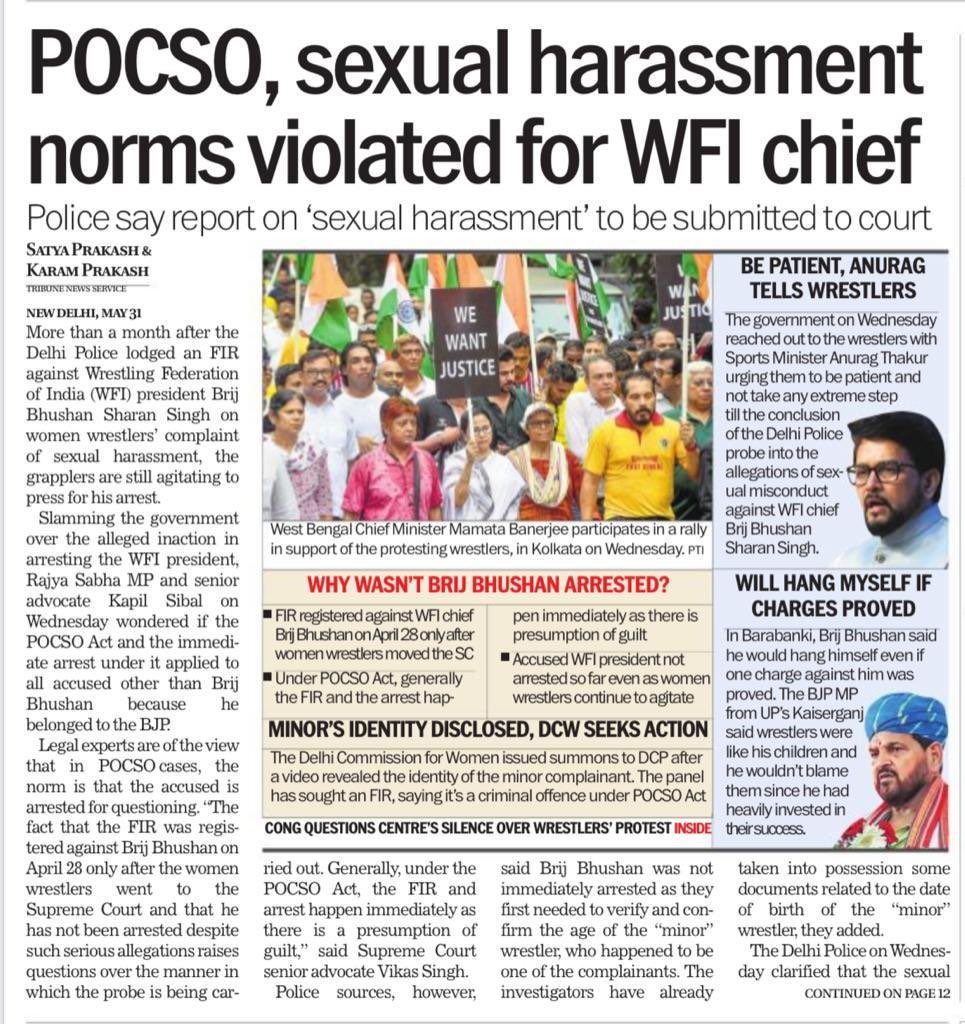








Take a look at the glowing reviews and success stories from some of our happy customers to see how (CompanyName) can help your business achieve its goals.